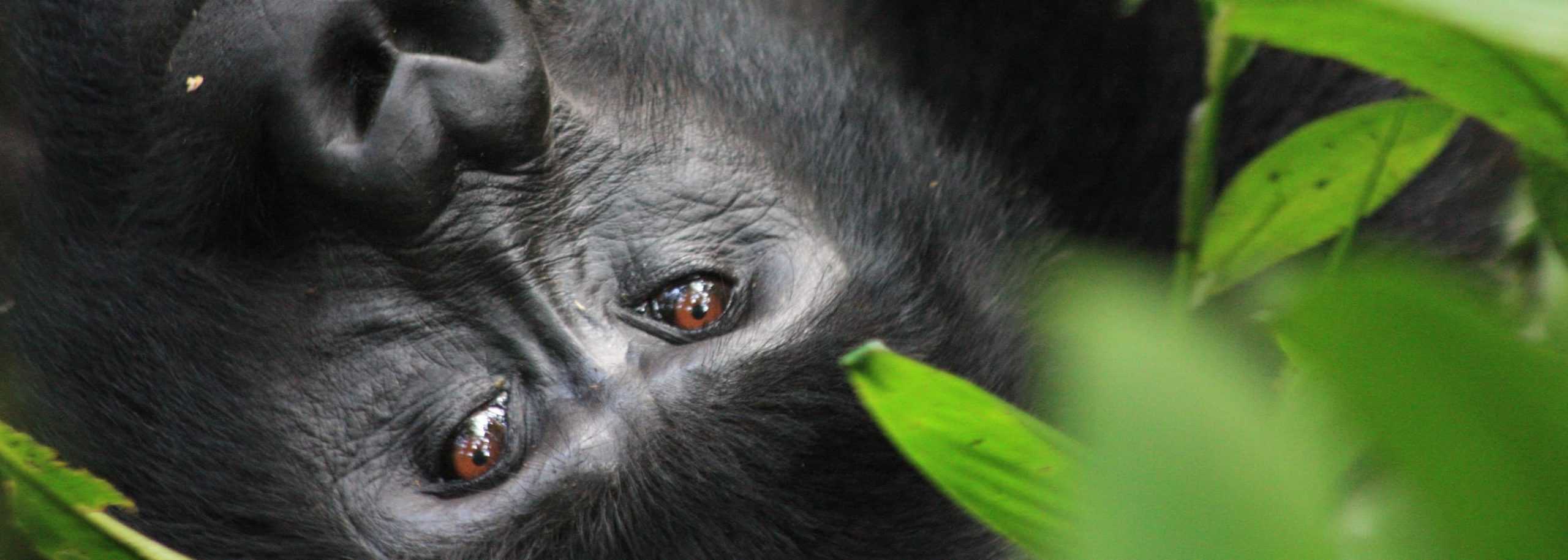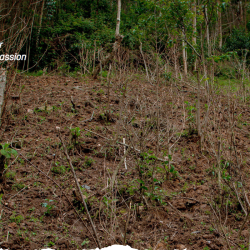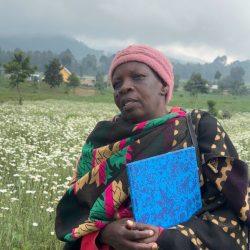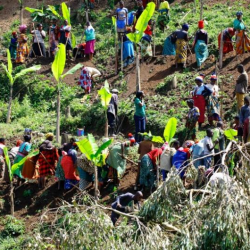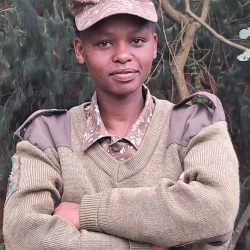Women Spearhead the Battle against Human Wildlife Through Constructing Rain Water Harvest Tanks!
Blog | 5/09/22
As she mixes sand and cement, Athanasia Mukabizimungu seems not bothered by the scorching sun, all that occupies her mind is getting the job done by the close of day! It is 12:30 noon at the foot of Mountain Muhabura, Gahunga Sector, Rwanda, as Athanasia and 5 more women are up to a task to erect a rainwater harvest tank for a community member. “This is a calling and we have served our community diligently for the past 13 years, constructing rainwater harvesting tanks as well as educating them about conservation and the dangers of illegal encroachment on the Volcanoes National Park,” says 53-year-old Athanasia as she proudly points to some of the tanks they have constructed before.
This community transforming journey started in 2009 when the International Gorilla Conservation Programme equipped 20 women and 5 men from Imbere Heza “Better Future” local cooperative with tank construction skills. The initiative was hatched to provide a solution for water scarcity that often-endangered humans and wildlife as people trekked long distances to illegally enter the volcanoes National Park in pursuit for water. “We often traveled for 3 kilometers into the national park to fetch water. And a couple of times we had dangerous encounters with the aggressive buffalos and some community members sustained injuries,” says Jean Damascene Nzaboninka, a resident of Rugarama cell, and a beneficiary of the water tank project. According to Nzaboninka, lack of water as well caused economic and health challenges, a trend that changed after these women were trained and equipped with skills to reach out to their community members and construct tanks.
Since 2009, the women have constructed over 600 rainwater harvest tanks in Gahunga, Rugarama, Genda, Mukamira and Kabatwa cells. And to differ from other service providers, beneficiaries are sensitized about conservation, hygiene, and Human Wildlife Conflict! “While handing over the tanks, we inform the beneficiaries that these are benefits of being park-edge communities and to reciprocate they should play a vital role in conserving the park, wildlife and report any illegal human activities,” says Juvenal Ndagijimana, one of the cooperative members. The team as well sensitizes community members on domestic hygiene and communal water sharing to keep the people from encroaching on the park in pursuit for water. To ensure ownership, tank owners also participate in the construction process and are indeed equipped with these skills. A tank is usually constructed by 5 people (including the owner) in a period of 7 days, and it is cleaned after 14 days. Meanwhile, the tank owner pays Rwf 100,000 for construction which goes directly into the cooperative’s account to facilitate developmental activities and support the rest of the members who are not into construction.
Apart from reducing Human Wildlife Conflict, constructing rainwater harvest tanks has immensely transformed livelihoods around Volcanoes National Park starting with a daily pay of Rwf 5000 a constructor earns to immense development ventures for Imbere Heza Cooperative. Through these construction works, the cooperative secured plots of land worth Rwf 16 million and this land was evenly shared among cooperative cells who use it for agriculture. The smallest of these garden can at least yield 3 tons of irish potatoes while the biggest gets a harvest of 10 tons which are sold between Rwf 280 -Rwf 350 depending on the market price. and make money at least Rwf 350 or 1.70 Per kilogram, depending on the market price. So far, with IGCP and Rwanda Development Board’s support, the cooperative has been able to equip at least 50 more members with construction skills. And yes, the cooperative was in 2011 recognized and awarded by the Rwandan Ministry of Public Service and Labour for improving both the environment and the livelihoods of its members and their community.
“We are excited to have pioneered such a great initiative. Training local communities to construct these tanks reduces on the cost of a tank and gets the community practically involved in seeking Human Wildlife Conflict mitigation measures. It is also an aspect of soil conservation and a way to fight soil erosion in these steep landscapes,” says Benjamin Mugabukomeye, IGCP -Rwanda Country Coordinator.
For Athanasia and her colleagues, they are delighted to contribute towards solutions to reduce Human Wildlife Conflict and promote conservation. The sky is the limit!
